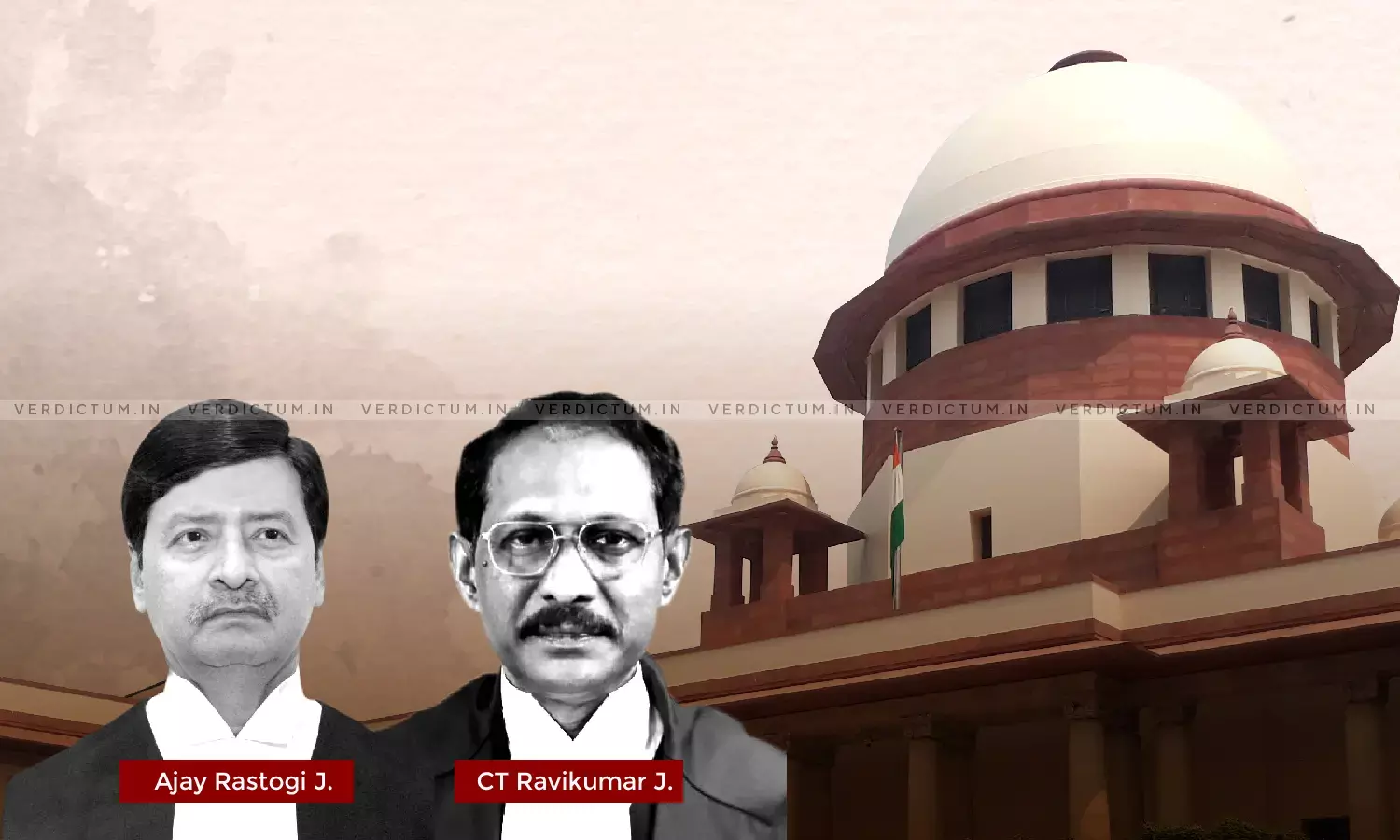Punctuation Marks By Themselves Do Not Control Meaning Of Statute When Its Meaning Is Otherwise Obvious: SC

The Supreme Court has held that punctuation mark is a minor element in the interpretation of a statute which cannot control the meaning of the statute when its meaning is otherwise obvious.
"It is well known that punctuation marks by themselves do not control the meaning of the statute when its meaning is otherwise obvious. The ordinary rule is that punctuation mark is a minor element in the interpretation of statute, more so, when it is a case of subordinate legislation.", the Bench of Justice Ajay Rastogi and Justice CT Ravikumar observed.
The Bench was dealing with a batch of appeals filed by the candidates who had qualified the Combined Civil Services Examination, 2016, but their appointments were cancelled later on.
The facts, in brief, are that the State of Jharkhand held its Combined Civil Service Examination in terms of the Bihar Civil Services (Executive Branch) and Bihar Junior Civil Services (Recruitment) Rules 1951. Before the 6th Combined Civil Services Examination, 2016 came to be notified, there was a series of meetings for revision of the examination pattern for Combined Civil Services Examination.
Pursuant to the recommendations of the HighLevel Committee, State amended the curriculum and methodology of the Combined Civil Services Examination with change of pattern of examination.
Thereafter all the applicants appeared in the first instance in preliminary examination and the result of the preliminary examination was published in February 2017, which was further updated on March, 2017 by declaring the candidates 15 times of the number of vacancies to appear in the main examination. In April 2017, the result of the preliminary examination was further declared and thereafter there was a series of litigation questioning the pattern or result of the preliminary examination declared by the Commission.
The Single Judge held that in the preliminary examination, the candidate has to obtain qualifying marks in both the papers. The list of successful candidates was published, the main written examination was conducted and the result of the main examination was declared and all the successful candidates in the written examination who fell in the zone of consideration were called for viva voce and the result of the candidates who qualified and successfully cleared all the stages, the final merit list was published of the selected candidates and the successful candidates of the 6th Combined Civil Services Examination, 2016 were appointed including the appellants in the instant batch of appeals.
Several writ petitions came to be filed later on before the Single Judge of the High Court assailing the result of the main examination of the 6th Combined Civil Services Examination, 2016.
The Single Judge set aside the merit list prepared by the Commission with a direction to prepare a fresh merit list with reference to the marks obtained in the written test (5 papers) and vivavoce, without adding the marks of PaperI and thereafter the final select list may be drawn in accordance with law.
The Division Bench went on to affirm the decision of the Single Judge.
Aggrieved, candidates approached Apex Court.
Advocate Satyajeet Kumar appeared for the candidates-appellants whereas Advocate Pallavi Langar appeared for the respondent-State. Advocate Himanshu Shekhar appeared for the Jharkhand Public Service Commission.
The Court observed thus "So far as Rule 16 of Rules, 1951 is concerned, it is true that if we go through the bare punctuation marks which have been highlighted by the counsel for the respondents, it certainly makes a distinction between clause (a) and clause (b) but for proper interpretation and to make the scheme of rules workable, sometimes punctuation marks may give a different impression and that cannot be taken in isolation for the interpretation of the scheme of rules."
"…If we read clause (a) and (b) of Rule 16 conjointly, it clearly manifests that clause (a) is general and precise for the candidates who are participating in the written examination whereas clause (b) refers to the candidates who belong to Scheduled Castes and Scheduled Tribes…", the Court noted further.
While holding that proviso to Rule 16 has to be read for both the clause (a) and (b), the Court observed that "The proviso added thereto relates to the stage for determining the suitability of the candidate, total marks obtained in the written examination has to be counted and not the marks obtained in any particular subject for preparing the list of candidates who qualify the written examination…"
The Court noted ambiguity in the advertisement and observed two possible views and either which could not be ruled out or outrightly negated.
"If we go through the scheme of the Rules 1951, we are clear that proviso to Rule 16 has to be read in conjunction to both Clause (a) and (b) and not to clause (b) in particular as being observed by the High Court in the impugned judgment.", the Court held.
The Court further noted, "In the given circumstances, what has been observed by the High Court may be one of the propositions in interpreting clause 12 and 13 of the advertisement but what is being considered by the Commission in its right earnest also cannot be ruled out."
The Court pointed out that when one possible view was acted upon by the Commission and pursuant to which candidates were appointed, it would be unjust for the Court to now permit the Government to take a U-Turn in compliance of the impugned judgment.
Therefore, the Court set aside the Judgment of the Division Bench of the High Court.
Cause Title- Barun Kumar & Ors. v. State of Jharkhand & Ors.
Click here to read/download the Judgment

